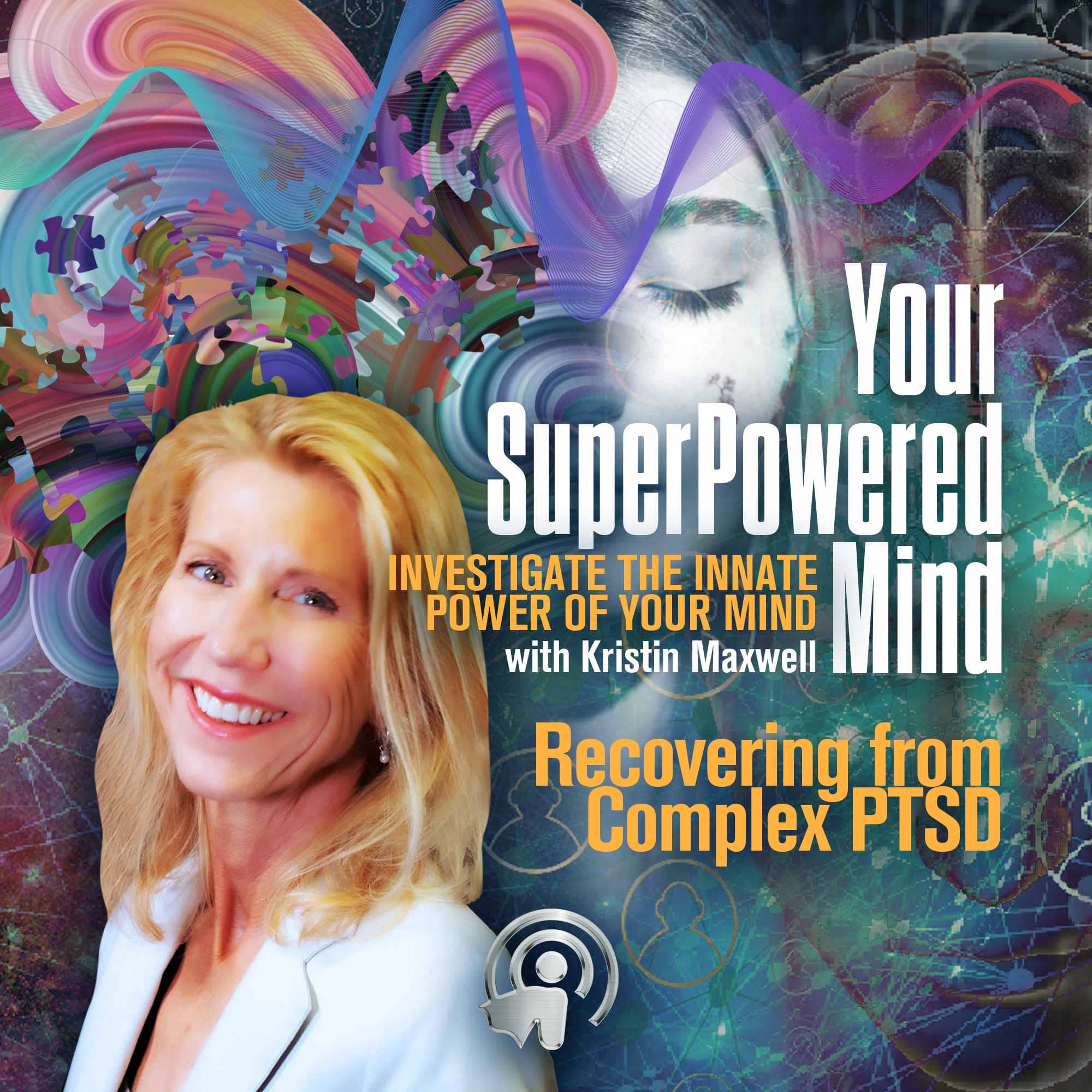
Recovering from Complex PTSD
How can an individual start recovering from complex PTSD? In this episode of Your Super Powered Mind, host Kristin Maxwell and guest Sara Church address the factors that contribute to complicated PTSD. They also discuss why the ability to control emotions is a positive factor. Tune in to know the various symptoms and trauma therapies to journey towards recovering from complex PTSD.
Kristin Maxwell:
Hello, everyone. Welcome to Your Superpowered Mind. I am Kristin Maxwell, and in this show, we explore the process of transformation and give you tools and strategies that you can use to transform your own life. Today, I have the pleasure of speaking with Sara Church about recovering or overcoming complex PTSD. Sara Church is a biotech executive and an advocate for mental health. At age 40, Sara discovered that she was suffering from complex post-traumatic stress disorder, due to unresolved childhood trauma. She went on a quest to understand and overcome the condition. She’s the author of the book, Mending My Mind, which is a story of her journey through the process. Sara, welcome to Your Superpowered Mind.
Sara Church:
Thank you, Kristin. I really appreciate being here.
Kristin Maxwell:
Yes. I’m excited, and I’m actually really interested in learning more about complex PTSD, all that involves, and how it impacted you. But first I’m going to ask my same question, which superpower did you uncover as the result of mastering your mind?
Sara Church:
Yeah, the superpower that I covered was harnessing my emotions as a beneficial force in my life. So, for example, in the past, I used to push down emotions that I labeled as bad emotions. So, for example, anger, and in doing that, I didn’t reap the benefits of those emotions. So, for example, in the case of anger, it can give us great insights into ourselves. It can be an alert system or a warning system, and just give us really good information if we get curious. Then secondly, that leads us to be able to take constructive action as a part of that information. Then finally, what I’ll say about emotions, is if we shut off the ones that we think are bad, then we can’t feel the good ones quite as much either. So, it also brought a lot more kinds of fulfillment and joy into my life by harnessing emotions as a superpower.
Kristin Maxwell:
And I love what you’re saying there, and that it was such a, I think that’s a new idea for a lot of people, which is this idea that if you’re not really feeling and processing and acknowledging a lot of your negative feelings, you are also going to be tamped down on your positive emotions, because it takes so much energy to keep control over these feelings and not feel them, and so then you just end up flatter. I may have experienced this in my life.
Sara Church:
Yeah. I can 100% relate to what you’re saying. I completely agree that that’s true, and we use a whole bunch of mechanisms to push away these emotions that we think are bad, which can be exhausting or unhealthy. So, for example, for me, it was excessive overworking. It could be using food, substances, or other things, or just having anxiety, or other things that come up in our life because it really doesn’t work in the long run to continually push emotions down. They find a way of showing up.
Kristin Maxwell:
They do. They’re wily in that way. So, I want to just start by saying what is complex PTSD and how does it differ if at all, from, I guess, regular PTSD or just PTSD?
Sara Church:
I’m really glad you asked that, and I had the same question four years ago when I have diagnosed with it myself and went on a quest to kind of really understand this. To your point, it is a form of PTSD, so I’m going to start by kind of quickly defining PTSD and then adding on the few elements that make complex PTSD a little bit different. But first and foremost, CPTSD or complex PTSD is a form of PTSD, and what PTSD is, as probably a lot of people know, it’s exposure to a traumatic event that either feels or is life-threatening and it causes symptoms in your life, so such as nightmares, flashbacks, sensitive stress response system, so that can be triggered in into fight or flight mode.
An example of this we often think about is that war veteran, and they may be triggered by the sound of a car backfiring and have a very large reaction to that event, unlike someone who wasn’t in a war zone. What complex PTSD is, includes kind of those symptoms and exposure to traumatic events, but what’s a little different about it, or what makes it complex is it’s generally caused by a series of traumatic events over time, often in childhood. As folks know, in childhood, when children’s brains are doing the massive amount of developments in laying the groundwork for our entire lives, it’s a series of traumatic events.
It can be horrific events that are chronic, such as a child being kidnapped and held in captivity, or it could be more common things that many of us have experienced. So, think about having a caregiver that was addicted to alcohol or drugs, and the chronic stress a child may face in that environment. A parent being taken away, such as parental incarceration and things that are just kind of repeated of that nature. Now, the differences in symptoms include the regular symptoms of PTSD, but there are a few additional symptoms, and there’s great information from the World Health Organization on these.
One is more difficult with emotions. So, in my case, I just avoided my emotions and really pushed them away. Secondly, diminished self-worth. So, it really kind of changes a person’s kind of relationship and identity with themselves, often manifesting with excessive guilt and shame. Then, the third implication is often kind of difficulties sustaining relationships or really kind of feeling close and sustaining that connection to others.
Kristin Maxwell:
Okay. Lots of information there. I want to go into more of your own story and how that showed up for you, and what you understood from it, and how it’s showing up for you now, how you’ve dealt with it, just because I think that will be super interesting for other people. But we do need to take a break first. Before we go, can you let people know where they can find your book?
Sara Church:
Thank you. SarahChurch.org. And then there are links to retailers that sell the book. Obviously, Amazon, Barnes & Noble, and places like that. Thank you.
Kristin Maxwell:
Great. Hang on everybody. We will be right back after the break and I’ll be talking to Sara more about what is involved when you have complex PTSD, and you’re wanting to decrease the symptoms in your own life. So, hang on.
For the best listening experience, download the Superpower Network App
Podcast: Play in new window

